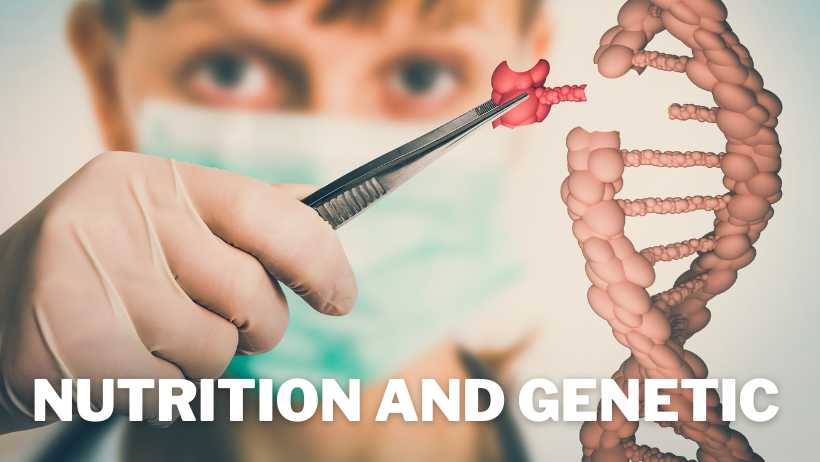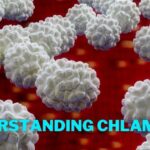
Have you ever wondered why certain diets work for some people but not for others? Or why certain foods make you feel energized while others leave you feeling sluggish? The field of nutrigenomics holds the answers to these questions and more.
By combining genetics and nutrition, nutrigenomics offers a personalized approach to diet and nutrition, taking into account an individual’s unique genetic makeup.
Through genetic testing, consultations with nutrition professionals, and the development of personalized diet plans, nutrigenomics aims to optimize health and wellbeing by understanding how our bodies process and react to different nutrients.
Although there are limitations and criticisms surrounding this field, the promising results in research suggest that nutrigenomics has the potential to revolutionize not only weight loss but also chronic diseases and sports performance.
By embracing nutrigenomics, we can gain a better understanding of our bodies and make more informed dietary choices for a healthier future.
The Field of Nutrigenomics
Definition and Overview
Nutrigenomics is a field that combines genetics and nutrition to create personalized diet plans. It explores the relationship between our genetic makeup and how our bodies process and react to different nutrients. By understanding our genetic variations, nutrigenomics aims to tailor diet plans that are specific to each individual, optimizing their overall health and well-being.
Combining Genetics and Nutrition
Genetics play a significant role in determining how our bodies process and react to different nutrients. Every individual has a unique genetic makeup that influences their ability to metabolize and utilize various components of their diet. Nutrigenomics takes these genetic factors into account and combines them with nutritional science to create personalized diet plans.
By analyzing an individual’s genetic variations, nutrigenomics can identify specific genetic markers that may indicate a person’s predisposition to certain nutrient deficiencies or sensitivities. This information allows nutrition professionals to create targeted dietary recommendations and interventions that can help optimize health outcomes for each individual.
Personalized Diet Plans
The ultimate goal of nutrigenomics is to create personalized diet plans that are tailored to an individual’s genetic makeup. These diet plans take into consideration an individual’s unique nutritional needs and genetic variations, providing specific guidelines on the types of foods to consume, portion sizes, and nutrient intake.
By customizing diet plans based on an individual’s genetic profile, nutrigenomics aims to optimize health outcomes and address specific concerns such as nutrient deficiencies, food intolerances, and chronic diseases. This personalized approach to nutrition can lead to improved overall health and well-being.
Genetics and Nutrition
Role of Genetics in Nutrient Processing
Genetics plays a significant role in determining how our bodies process and utilize different nutrients. Variations in genes can impact the activity of enzymes and other proteins involved in digestion, absorption, and metabolism of nutrients. These genetic differences can affect how efficiently an individual can utilize certain nutrients, leading to variations in nutritional status and health outcomes.
For example, genetic variations in the lactase gene can influence an individual’s ability to digest lactose, the sugar found in milk and dairy products. People with a lactase persistence genetic variant can continue to produce the enzyme lactase, which allows them to digest lactose into adulthood. On the other hand, individuals with a lactase non-persistence genetic variant experience a decline in lactase production after childhood, leading to lactose intolerance.
Differences in Reactions to Nutrients
Individuals may also have different reactions to nutrients based on their genetic makeup. Genetic variations can influence how our bodies respond to certain nutrients, which can lead to variations in health outcomes.
For example, research has found that genetic variations in the FTO gene are associated with increased risk of obesity. Individuals with certain genetic variants of the FTO gene may be more prone to weight gain and have a harder time losing weight compared to those without these variants. Understanding these genetic variations can help tailor diet plans that are more effective in managing weight and preventing obesity.
Understanding Genetic Variations and Their Impact
Nutrigenomics aims to understand the various genetic variations that can impact our nutrient processing and metabolism. By analyzing an individual’s genetic profile, nutrition professionals can identify specific gene variants that may influence their nutritional needs and health outcomes.
Through this understanding, nutrigenomics can provide insights into which nutrients an individual may need more of, which they may need to limit or avoid, and how their body may respond to certain dietary interventions. This information can then be used to develop personalized diet plans that are tailored to an individual’s unique genetic makeup.
The Process of Nutrigenomics
Genetic Testing
Getting started with nutrigenomics involves a genetic test that analyzes an individual’s DNA for specific gene variants related to nutrient processing and metabolism. This test may involve collecting a saliva sample or a buccal swab from the inside of the cheek. These samples are then sent to a laboratory where the DNA is extracted and analyzed.
Genetic testing in nutrigenomics can provide valuable insights into an individual’s genetic variations and their potential impact on their nutritional needs and health outcomes. It can identify specific gene variants related to nutrient metabolism, food sensitivities, and chronic disease risk. This information forms the basis for developing personalized diet plans.
Consultation with a Nutrition Professional
After the genetic test results are obtained, it is important to consult with a qualified nutrition professional who specializes in nutrigenomics. These professionals have the knowledge and expertise to interpret the genetic test results and provide personalized dietary recommendations based on an individual’s unique genetic makeup.
During the consultation, the nutrition professional will review the genetic test results, discuss any potential nutrient deficiencies or sensitivities, and provide guidance on the types of foods to consume and avoid.
They may also recommend specific supplements or dietary interventions to address any identified concerns. This personalized approach ensures that the dietary recommendations are tailored to the individual’s genetic variations and nutritional needs.
Developing a Personalized Diet Plan
Based on the genetic test results and the consultation with a nutrition professional, a personalized diet plan is developed. This diet plan takes into consideration an individual’s unique genetic variations, nutritional needs, and health goals.
The personalized diet plan may include specific recommendations on macronutrient intake (such as carbohydrates, proteins, and fats), portion sizes, and specific foods to include or avoid. It may also incorporate dietary modifications to address any identified nutrient deficiencies or sensitivities.
The nutrition professional works closely with the individual to ensure that the personalized diet plan is practical, sustainable, and aligns with their preferences and lifestyle. Regular follow-up visits may be scheduled to monitor progress and make any necessary adjustments to the diet plan.
Resources for Nutrigenomics
Everlywell’s Food Sensitivity Tests
Everlywell offers a range of at-home genetic testing kits, including their Food Sensitivity Test. This test analyzes an individual’s genetic variations related to food sensitivities and intolerances. The test provides insights into how an individual’s genetic makeup may influence their reactions to certain foods and can help guide dietary choices and restrictions.
Everlywell’s Food Sensitivity Test is convenient and accessible, allowing individuals to collect their samples at home and send them to a laboratory for analysis. The test results are then available online, and individuals can consult with a healthcare professional or nutritionist to interpret the results and develop a personalized diet plan.
Pure Essentials Nutritional Genetics Test
The Pure Essentials Nutritional Genetics Test is another resource for nutrigenomics that analyzes an individual’s genetic profile to provide insights into their unique nutritional needs and health risks. This test assesses specific gene variants related to nutrient metabolism, food sensitivities, and chronic disease risk.
The Pure Essentials Nutritional Genetics Test offers a comprehensive analysis of an individual’s genetic variations that impact nutrition. The test results are interpreted by healthcare professionals trained in nutrigenomics, who can provide personalized dietary recommendations based on the genetic findings. This test can help individuals gain valuable insights into their bodies’ specific nutritional requirements and make informed dietary choices.
Other Available Resources
In addition to Everlywell and Pure Essentials, there are other resources available for individuals interested in nutrigenomics. Many research institutions and healthcare facilities offer genetic testing services that specialize in analyzing genetic variations related to nutrition.
These services often have teams of nutrition professionals who can provide guidance and support in developing personalized diet plans based on the test results.
It is important to choose reputable and reliable resources for nutrigenomics to ensure accurate and valid results. Consulting with a qualified nutrition professional or healthcare provider is recommended to navigate the available resources and select the most appropriate option for an individual’s needs.
Limitations and Criticisms
Oversimplification of Genes-Diet Relationship
One of the criticisms of nutrigenomics is the oversimplification of the relationship between genes and diet. While genetic variations can influence how our bodies process and react to different nutrients, other factors such as lifestyle, environment, and overall dietary patterns also play a significant role in determining health outcomes.
It is important to view nutrigenomics as one tool in the larger context of personalized nutrition. Genetic variations provide valuable insights into an individual’s unique nutritional needs, but they do not solely determine dietary requirements. The personalized diet plans developed through nutrigenomics should consider multiple factors, including genetic variations, lifestyle, and overall health goals.
Privacy and Ethical Concerns
Another limitation of nutrigenomics is the privacy and ethical concerns associated with genetic testing. Genetic information is highly sensitive and can reveal personal and familial details. There are concerns about the security of genetic data, potential misuse of this information, and the potential for discrimination based on genetic profiles.
It is crucial for individuals engaging in nutrigenomics to ensure that their genetic testing is conducted by reputable and secure providers. Understanding the privacy policies surrounding the storage and use of genetic data is essential. Sharing genetic information with trusted healthcare professionals who are committed to maintaining confidentiality can help address privacy concerns.
Addressing the Limitations and Criticisms
To address the limitations and criticisms of nutrigenomics, ongoing research and advancements in the field are essential. Continued research can help refine and improve the understanding of the complex interactions between genes and diet, taking into account other contributing factors such as lifestyle and environment.
In terms of privacy and ethical concerns, regulatory frameworks can help protect individuals’ genetic information. Implementing policies that safeguard the storage, use, and sharing of genetic data can ensure individuals’ privacy is respected. Additionally, guidelines and professional standards can promote responsible and ethical practices in nutrigenomics research and the provision of personalized dietary recommendations.
Promising Results and Future of Nutrigenomics
Research Findings
Research in nutrigenomics has shown promising results in understanding how genetic variations influence nutrient metabolism and health outcomes. Studies have identified specific gene variants that affect nutrient processing and have linked these variations to increased risks of certain chronic diseases or nutrient deficiencies.
The field of nutrigenomics continues to expand, with ongoing research to identify additional gene-nutrient interactions. This research aims to provide a more comprehensive understanding of how genetic variations impact dietary requirements and health outcomes.
Potential Impact in Weight Loss
Nutrigenomics has the potential to impact weight loss and weight management. By identifying genetic variations related to metabolism and weight regulation, personalized diet plans can be tailored to individuals’ specific needs and genetic predispositions.
Research has found that individuals with certain genetic variations may respond differently to specific dietary interventions, such as low-carbohydrate or low-fat diets. By understanding these genetic variations, nutrigenomics can help optimize weight loss strategies and improve long-term weight management.
Potential Impact in Chronic Diseases
Nutrigenomics also holds promise in the prevention and management of chronic diseases. By analyzing an individual’s genetic variations, nutrition professionals can identify specific gene variants associated with an increased risk of certain chronic diseases, such as cardiovascular disease or type 2 diabetes.
Personalized diet plans can be developed to mitigate these genetic risks and promote optimal health outcomes. By targeting specific dietary factors based on an individual’s genetic profile, nutrigenomics can help prevent or manage chronic diseases more effectively.
Potential Impact in Sports Performance
In the field of sports performance, nutrigenomics has the potential to optimize athletic performance and recovery. By understanding an individual’s genetic variations related to nutrient metabolism, muscle recovery, and injury prevention, personalized diet plans can be developed to support athletic goals.
For example, research has found that genetic variations in certain genes may influence an individual’s response to specific nutrients, such as caffeine or omega-3 fatty acids. By incorporating this genetic information into personalized diet plans, nutrigenomics can optimize an athlete’s performance and enhance their recovery.
Towards Mainstream Personalized Nutrition
With ongoing research and advancements in nutrigenomics, personalized nutrition has the potential to become more mainstream. As the understanding of gene-nutrient interactions improves, and as technology advances, genetic testing and personalized diet plans may become more accessible and affordable for the general population.
By embracing nutrigenomics, individuals can gain a better understanding of their bodies and make more informed dietary choices. Personalized diet plans can help optimize health outcomes, prevent chronic diseases, and support overall well-being.
As research in nutrigenomics continues to evolve, personalized nutrition has the potential to revolutionize the field of nutrition and transform the way we approach dietary recommendations.
Benefits of Embracing Nutrigenomics
Better Understanding of Our Bodies
Embracing nutrigenomics provides individuals with a better understanding of their bodies and how their genetic makeup influences their nutritional needs and health outcomes.
By gaining insight into their genetic variations, individuals can develop a more comprehensive understanding of their unique nutritional requirements and make dietary choices that align with their specific needs.
Understanding the complex relationship between genes and diet can also help individuals make informed decisions about their lifestyle, including exercise, sleep, and stress management. This holistic understanding of their bodies empowers individuals to take charge of their health and well-being.
Informed Dietary Choices
With personalized diet plans developed through nutrigenomics, individuals can make more informed dietary choices. By understanding which nutrients their bodies may have greater or lesser needs for, individuals can make targeted food choices that optimize their nutrient intake.
For example, if an individual has genetic variations that suggest a higher need for certain vitamins or minerals, they can consciously incorporate foods rich in these nutrients into their diet. On the other hand, if an individual has genetic variations that suggest a higher risk of certain nutrient deficiencies or sensitivities, they can modify their diet to address these concerns.
Informed dietary choices, based on personalized diet plans, can help individuals optimize their nutrition and support their overall health and well-being.
Improved Overall Health and Well-being
Embracing nutrigenomics has the potential to improve overall health and well-being. By tailoring diet plans to an individual’s unique genetic makeup, nutrigenomics can address specific dietary needs, nutrient deficiencies, and sensitivities. This personalized approach to nutrition can help optimize nutrient intake and promote optimal health outcomes.
By optimizing nutrition, nutrigenomics can support various aspects of health, including immune function, cardiovascular health, hormonal balance, and mental well-being. By nourishing the body with the right nutrients and avoiding potential triggers, individuals can experience improved energy levels, better digestion, enhanced cognitive function, and a reduced risk of chronic diseases.
In conclusion, nutrigenomics is a field that combines genetics and nutrition to create personalized diet plans. By understanding the relationship between our genetic makeup and nutrient processing, nutrigenomics aims to optimize health outcomes and improve overall well-being.
Through genetic testing, consultation with nutrition professionals, and the development of personalized diet plans, individuals can make more informed dietary choices and tailor their nutrition to their unique genetic variations. With ongoing research and advancements in the field, nutrigenomics has the potential to revolutionize personalized nutrition and transform the way we approach dietary recommendations.
Embracing nutrigenomics offers individuals a better understanding of their bodies, informed dietary choices, and improved overall health and well-being.










